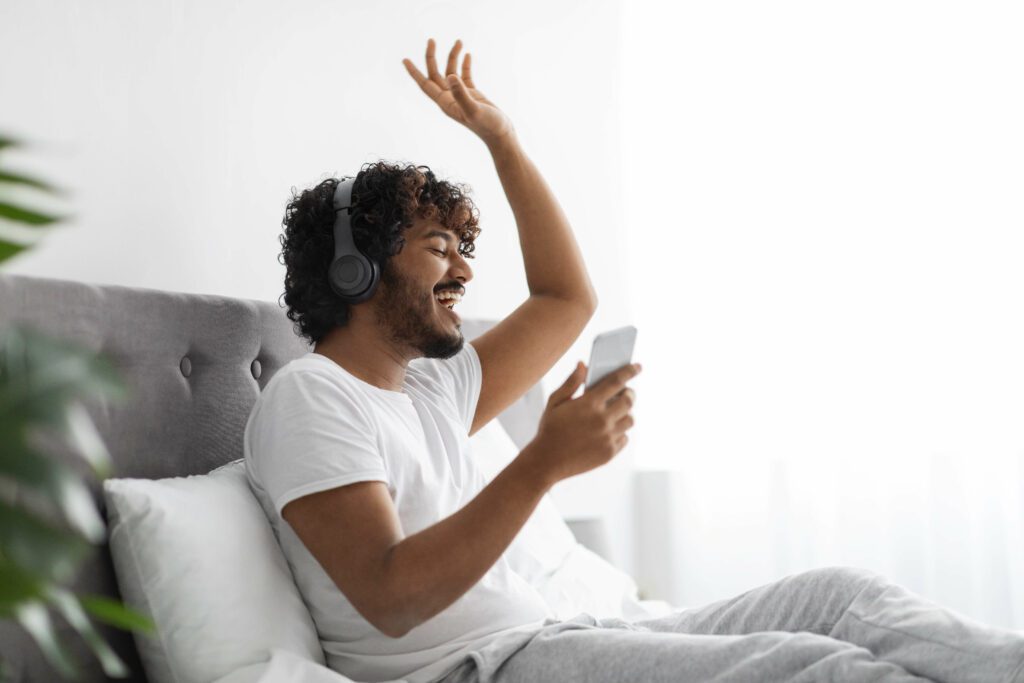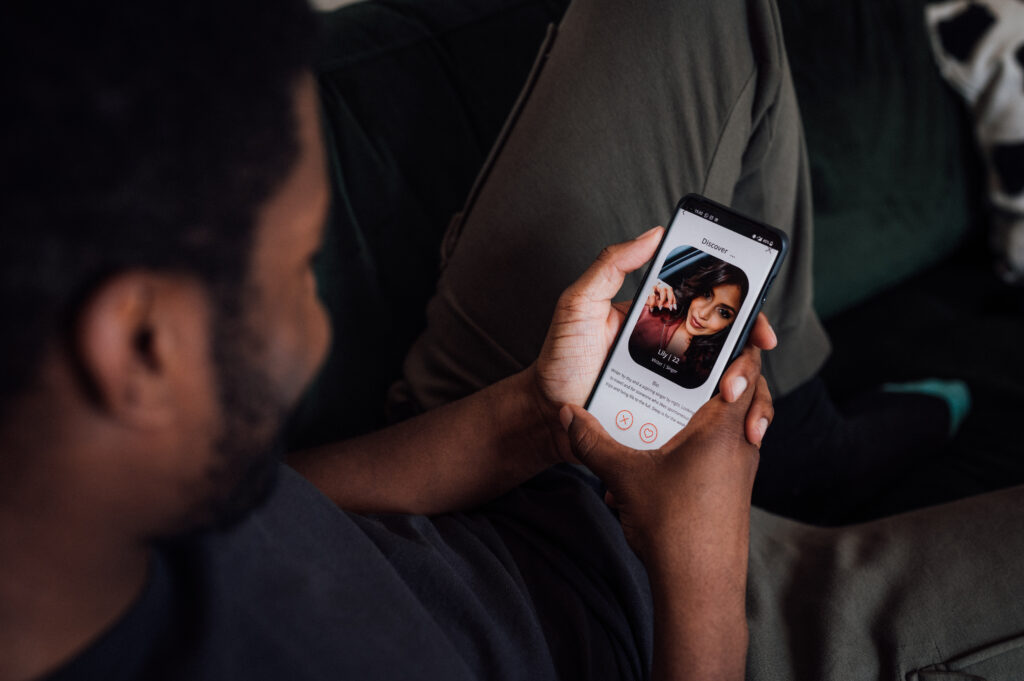After the turmoil that was 2020, most could only hope that months of lockdown were behind us. But as we quickly learned, the coronavirus isn’t going anywhere, and despite the easing of restrictions, as those in Melbourne came to realise, it only takes a few to see the virus spread before the rest of the state is plunged back into lockdown. As media outlets continue to bring us an update on escalating statistics and rising death tolls, it’s hard not to feel a growing sense of anxiety over the uncertainty that now seems to blanket our lives. With plans for the future temporarily shelved, navigating the present is all we can really do. But even then, social distancing and self-isolation make this time one of great challenges.
As many experienced last year, it’s hard not to feel a sense of alienation as we move to working from home in an effort to socially distance ourselves from others. While some find this to be the preferred working set-up, for those who live alone, it can be extremely difficult and lead to feelings of loneliness. Not surprisingly, psychologists have been calling this a period of “social recession,” suggesting that the physical and psychological effects caused by the pandemic can’t be underestimated.
With Melbourne grappling with another snap lockdown and the rest of Australia on high-alert for further outbreaks, we spoke to Louise Troen, Vice President, International Marketing at Headspace, to discuss the uncertainty we’re all experiencing and how apps like Headspace can help. With Australia currently ranking second in mental illness as a proportion of the total health loss and one in two Aussie adults experiencing mental ill-health at some point in their lives, according to the Australian Department of Health, there’s never been a more important time than the present to make our mental health a priority. Though Headspace has long been an app that champions mental health, with users utilising its guided meditation for managing stress, better sleep, mindfulness and greater control of their emotions, the app has also been instrumental in establishing a routine you can do anywhere and anytime, helping elevate the anxiety many experience during lockdown.
Below, Louise shares her tips for navigating the uncertainty of this time and how best to manage anxiety during lockdown, as well as how to best use the guided meditation to create a routine that makes mental health a priority every day.
Men’s Health: What impact has lockdown as a result of the pandemic had on our mental health? Is there a particular demographic that’s more susceptible to feelings of anxiety or depression, or is it more widespread?
Louise Troen: The Pandemic has seen people from all backgrounds be affected by mental health consequences ,and similarly to Covid 19, there is no one group that is immune to it. We’re seeing the ramifications of the Pandemic as a Global, cross demographic issue.
It’s so important that we treat everyone on our platform with kindness, respect and the understanding that their mental health both pro, during and post Pandemic is a really personal experience that often requires a personalised approach (which Headspace offers with its wealth of meditations and content).
We know that the silent pandemic of mental health has seen unprecedented numbers of individuals struggling with the stress, anxieties and consequences of isolation, furlough and lack of freedom and choice. For many, these feelings have been underlying and are surfacing themselves now – and it’s important we address this front on so we can tackle it effectively. We have seen a significant uptake of memberships to the product from both consumers, and Headspace for Work – as we all collectively focus on supporting our minds, as much as we do our bodies.
For those navigating lockdown for a second or third time, what tools and strategies can they use to manage feelings of anxiety, stress and depression? Are there any apps you would recommend during this time?
At Headspace, we recommend focusing on starting a routine of meditation. This can be a few minutes each morning, day or night and we have a wealth of content for the right time of day. The key is consistency, and holding space for something for you in everyday life. We’ve seen such huge benefits and real transformations in our members who stay committed to the practice, and a few minutes a day is scientifically proven to make a significant difference long term. The discipline to focus in on the breath and stay present in controlling the breath can relieve us when all external factors see out of our control.
We have some instant suggestions in the app for when you’re in need of focusing, being energised, the desire to be hopeful or content – so that we can direct you to the best content for your current state of mind.
Many have experienced the sense of isolation that comes from lockdown. Do you have any tips on how to stay connected during this time?
There is no doubt that the resulting social isolation that comes from lockdown has taken its toll on our mental health and the importance of regular social connection cannot be overstated. We know loneliness has strong links to depression and our happiness
depends on the relationships we cultivate and rely on with other people. I’d advise to check in on the people around you and know that emotions and overall morale are low and people will be struggling from time to time. While face to face interactions and touch are not possible, modern technology has made it easier to have virtual catch ups.
Unfortunately, a lot of the circumstances around isolation are out of our hands and that’s where a tool like meditation comes in, to help us find a calming perspective. If you’re looking for somewhere to sign up to get started – our facebook group community is a really supportive, inclusive community from all over the world. We also have a group meditation exercise so if you’re feeling lonely – you can meditate with people from all around the world for a sense of togetherness.
As we shift to working from home, many of us find ourselves working longer hours due to the feeling that we need to constantly be “plugged-in.” Do you have any advice on how to combat this and prioritise our mental health?
I’ve found if we’re not careful the lines between work and personal life start to blur so I’d suggest approaching this mindfully and reflect on how you’d like to best use your time. Saying no can be incredibly empowering, and remembering that slowing down can be your strongest ally in delivering the best work.
For me, it’s important to create a routine or set to make sure you get up from your desk regularly and get some fresh air outside or make a phone call as you walk. Set aside time to move your body, have time away from your desk to enjoy a nourishing lunch and take a few mindful moments here and there to make sure you’re being present and not falling into the traps of being stuck at your desk all day.
I find it helpful to download the meditations and then pop my phone on aeroplane mode. The wind down is a brilliant feature to help us to slow down after a day of being plugged in.
For those who are struggling with their mental health and anxiety during lockdown, how would you encourage them to start a conversation about it with friends and family?
I’d like to think we’ve come a long way with these discussions but know we still have some way to go before these conversations with each other are truly considered ‘normal’. If you are struggling to start a conversation, I’d suggest writing a letter or e-mail and sharing it with someone you’re comfortable with so they’re aware of what’s going on in your life and go from there. Writing itself can be a therapeutic way to manage anxiety and something I personally do to get my anxious thoughts out of my head.
Similarly, how can friends and colleagues effectively check-up on their mates?
Letting them know you are there for them and listening is absolutely key. Really listen and engage in conversation by asking questions. Reassure them they should never feel alone and that they can talk to you about what’s going on. Encourage them to find ways of managing their anxiety and offer some suggestions and be patient as the person you’re talking to might need space before they feel ready to seek help. Before I joined Headspace, a friend of mine actually bought me a years’ subscription and it was a really thoughtful way to offer support.
For more information on Headspace’s guided meditation and mindfulness, visit the website here.
















